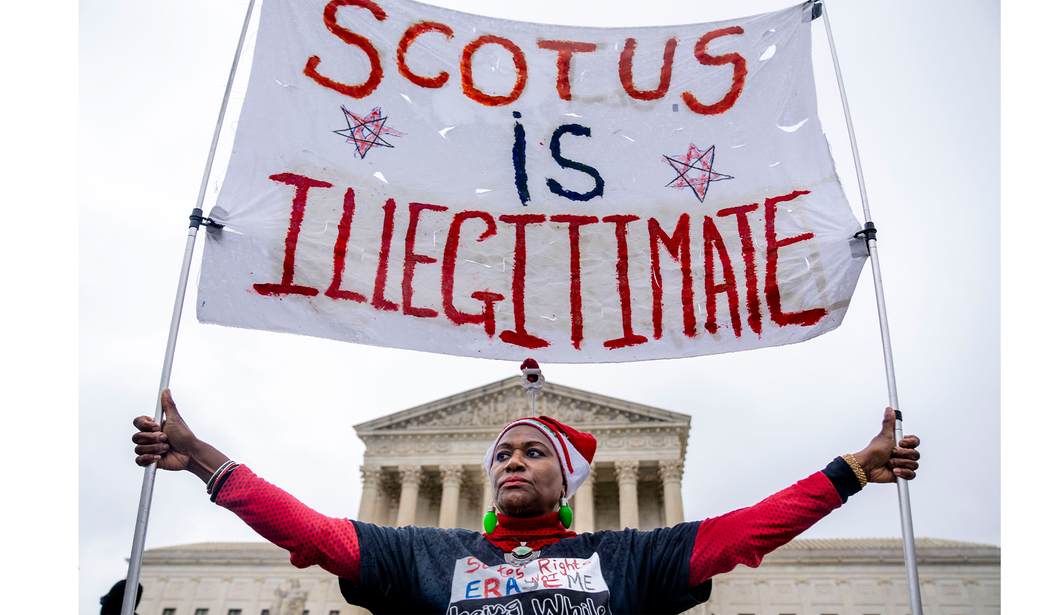The series of decisions handed down by the U.S. Supreme Court in its latest session are so consequential that I would call it "a new birth of freedom."
These are, of course, the words of Abraham Lincoln at the bloody battlefield at Gettysburg.
There is a deep and meaningful connection between Lincoln's words then, in 1863, and the words of our Supreme Court now in 2023.
The 14th Amendment was added to the Bill of Rights after the Civil War to assure that all citizens receive equal protection under the law. This after the horrible history of slavery and the earlier Supreme Court decision, Dred Scott, which denied exactly that equal protection to African Americans.
The 14th Amendment was ratified to fix the blemish on this nation regarding its treatment of one large segment of humanity. And it is the 14th Amendment to which Chief Justice John Roberts turned, in writing the decision on Students for Fair Admissions v. University of North Carolina and Students for Fair Admissions v. President and Fellows of Harvard College, to negate the use of race in college admissions.
The use of race in admissions "cannot be reconciled with the guarantees of the equal protection clause" of the 14th Amendment, wrote Roberts.
The decision also captures the spirit of Dr. Martin Luther King Jr.'s famous words in 1963 that "I have a dream that my four little children will one day live in a nation where they will be judged not by the color of their skin but by the content of their character."
Those words, and King's "I Have a Dream" speech in general, captured the spirit of what the Civil Rights Movement was supposedly about.
Recommended
The complaint was not about American ideals but the failure to live up to the American ideal of a free nation under God.
King famously concluded that great speech, dreaming of the day "when all of God's children, Black men and White men, Jews and Gentiles, Protestants and Catholics, will be able to join hands and sing in the words of the old Negro spiritual, free at last, free at last, thank God almighty, we are free at last."
But soon, the inspiration of God Almighty and freedom floated into the sky to be displaced on the ground with the cynicism and ambition of politics and political power.
The ideal of individual freedom and equal treatment under the law was displaced by the idea that justice is achieved through government power and social engineering.
A federal bureaucracy grew out of the 1964 Civil Rights Act -- the Civil Rights Commission, the Equal Employment Opportunity Commission, the Office of Federal Contract Compliance Programs, the Office of Minority Business Enterprise, etc. -- all empowered with understanding that discrimination in favor of certain racial groups was lawful and constitutional.
Then, in the early 1970s, it went beyond correcting the historic evil of slavery and the legacy of racism against African Americans to become in general about race and ethnicity.
In 1973, the Federal Interagency Committee on Education was directed to produce rules classifying Americans by race and ethnicity and it responded with five racial/ethnic categories: American Indian or Alaskan Native, Asian or Pacific Islander, Black, White and Hispanic.
In polling done by Pew several months ago, 50% said they disapprove of colleges using race and ethnicity in their admission policy and 33% said they approve. However, among Blacks, 29% said they disapprove and 47% said they approve.
Unfortunately, King's great dream of freedom, which inspired the Civil Rights Movement, has been lost in the hearts and minds of many Black Americans and eclipsed by social engineering.
What the Supreme Court has done is show that our Constitution embodies and codifies that dream.
We'll all be better off for the court's courageous decision against social engineering and for a nation of free citizens, treated equally under the law.

























Join the conversation as a VIP Member